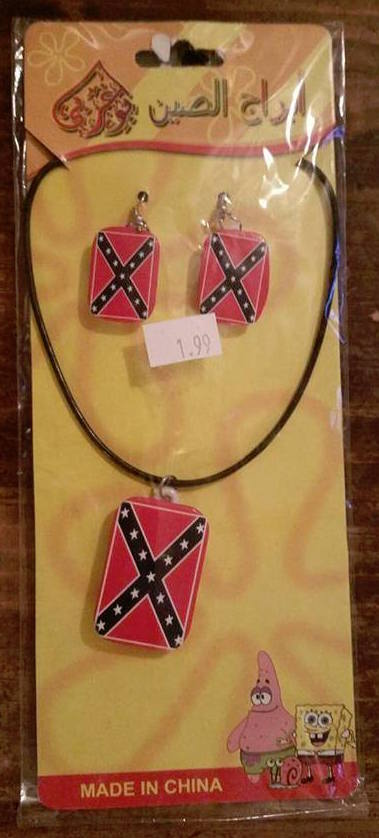Archive for Etymology
"Dog" in Japanese: "inu" and "ken"
This post intends to take a deep look at the words for "dog" in Japanese, "inu" and "ken", both written with the same kanji (sinogram; Chinese character): 犬.
I will begin with some basic phonological and etymological information, then move to an elaboration of the immediate cause for the writing of this post, observations from colleagues, and a brief conclusion.
Read the rest of this entry »
Pell-mell
When, about 40 years ago, I first read the "Basic Annals of Xiang Yu (232-202 BC)" ( Xiàngyǔ běnjì 項羽本紀) in the The Scribe's Records (Shǐjì 史記, ca. 94), the foundation for the 24 official dynastic histories that followed it, I was struck by this sentence: `Yúshì Xiàng wáng dà hū chí xià, Hàn jūn jiē pīmí, suì zhǎn Hàn yī jiāng.'「於是項王大呼馳下,漢軍皆披靡,遂斬漢一將。」("Then King Xiang shouted loudly and galloped down, causing all of the Han army [to flee] pell-mell, whereupon he cut down one of the Han generals".)
Read the rest of this entry »
Language vs. script
Many of the debates over Chinese language issues that keep coming up on Language Log and elsewhere may be attributed to a small number of basic misunderstandings and disagreements concerning the relationship between speech and writing.
Read the rest of this entry »
"Arrival is a tree that is still to come"
Thanks to Chinese characters, we are inundated with such preposterous profundities.
In the day before yesterday's UK Observer, there is an article by Claire Armitstead titled "Madeleine Thien: ‘In China, you learn a lot from what people don’t tell you’: The Man Booker-shortlisted writer on a solitary childhood in Canada and daring to question the Chinese regime" (10/8/16).
Read the rest of this entry »
Common language
Provocative research results reported in Sci-News (9/13/16), "Unrelated Languages Often Use Same Sounds for Common Objects and Ideas, Research Finds":
A careful statistical examination of words from 6,000+ languages shows that humans tend to use the same sounds for common objects and ideas, no matter what language they’re speaking.
Read the rest of this entry »
Eurasian eureka
After reading the the latest series of Language Log posts on long range connections (see below for a listing), Geoff Wade suggested that I title the next post in this series as I have this one. If there ever was an occasion to do so, now is as good a moment as any, with the announcement of the publication of Chau Wu's extraordinary "Patterns of Sound Correspondence between Taiwanese and Germanic/Latin/Greek/Romance Lexicons, Part I", Sino-Platonic Papers, 262 (Aug., 2016), 239 pp. (free pdf).
Read the rest of this entry »
Shiok, shiok
Taylor Swift sings "shake, shake", but in Singapore and Malaysia, everybody is saying "shiok, shiok".

Source: "Where or how did the phrase Shiok or Syiok used in Malaysia & Singapore originate?" (Quora, Feb. 2015)
Read the rest of this entry »
Of shumai and Old Sinitic reconstructions
It's no secret that I'm a great fan of the AHD:
"The American Heritage Dictionary of the English Language, 5th edition " (11/14/12)
My devotion to AHD stems not just from its unparalleled inclusion of Indo-European and Semitic roots, but from its outstanding coverage of terms relating to Chinese languages and linguistics. It was already strong in the latter respect in the earlier editions, but, with the 5th edition (2011), there was a noticeable improvement, such that the treatment of Chinese in AHD cannot be matched by any other dictionary of English.
Read the rest of this entry »
"Enter the Dangal"
Earlier this year, Language Log readers contributed to the elucidation of "South Asian wrestling terms" (3/1/16).
Read the rest of this entry »
Unnecessariat
Anne Amnesia, "Unnecessariat", More Crows than Eagles, 5/10/2016:
In 2011, economist Guy Standing coined the term “precariat” to refer to workers whose jobs were insecure, underpaid, and mobile, who had to engage in substantial “work for labor” to remain employed, whose survival could, at any time, be compromised by employers (who, for instance held their visas) and who therefore could do nothing to improve their lot. The term found favor in the Occupy movement, and was colloquially expanded to include not just farmworkers, contract workers, “gig” workers, but also unpaid interns, adjunct faculty, etc. Looking back from 2016, one pertinent characteristic seems obvious: no matter how tenuous, the precariat had jobs. The new dying Americans, the ones killing themselves on purpose or with drugs, don’t. Don’t, won’t, and know it.
Here’s the thing: from where I live, the world has drifted away. We aren’t precarious, we’re unnecessary. The money has gone to the top. The wages have gone to the top. The recovery has gone to the top. And what’s worst of all, everybody who matters seems basically pretty okay with that. The new bright sparks, cheerfully referred to as “Young Gods” believe themselves to be the honest winners in a new invent-or-die economy, and are busily planning to escape into space or acquire superpowers, and instead of worrying about this, the talking heads on TV tell you its all a good thing- don’t worry, the recession’s over and everything’s better now, and technology is TOTES AMAZEBALLS!
The article starts by comparing the rise in suicide and overdose deaths to the history of AIDS deaths in the 1980s, and her punchline is this:
If I still don’t have your attention, consider this: county by county, where life expectancy is dropping survivors are voting for Trump.
Since this is Language Log and not Political Analysis Log, I'll let you digest the article on your own, and turn my attention to the word formation principles behind unnecessariat.
Read the rest of this entry »
Epistemological metaphors and meanings
Following up on the issues raised yesterday in "Feelings, beliefs, and thoughts", it might be helpful to explore the etymology of the various verbs that people commonly use to express the epistemic status of their assertions. From their entries in the Online Etymological Dictionary, we'll learn that several common propositional attitude verbs have roots in sensation, motion and emotion, just as feel does.
Read the rest of this entry »
Old Sinitic reconstructions and Tibeto-Burman cognates
[The following is a guest post by Tsu-Lin Mei.]
—————-
The Old Chinese reconstruction of Gong Hwang-cherng and James Matisoff is not only internally consistent, but can be shown to have a Tibeto-Burman counterpart through Sino-Tibetan comparative studies. Gong Hwang-cherng's Collected Papers on Sino-Tibetan Linguistics 龚煌城, Hàn-Zàngyǔ yánjiū lùnwén jí《汉藏语研究论文集》(2002) has about 300 cognate sets — involving Old Chinese, Written Tibetan, Written Burmese, and reconstructed Tangut. I am writing a paper whose purpose is to unite Gong's work with Zàng-Miǎn yǔzú yǔyán cíhuì《藏缅语族语言词汇》(Lexicon of Tibeto-Burman languages), edited by Huang Bufan 黄布凡 (1992). So far I have 142 cognate sets and can testify that Gong's cognate sets on the whole hold water.
Read the rest of this entry »
